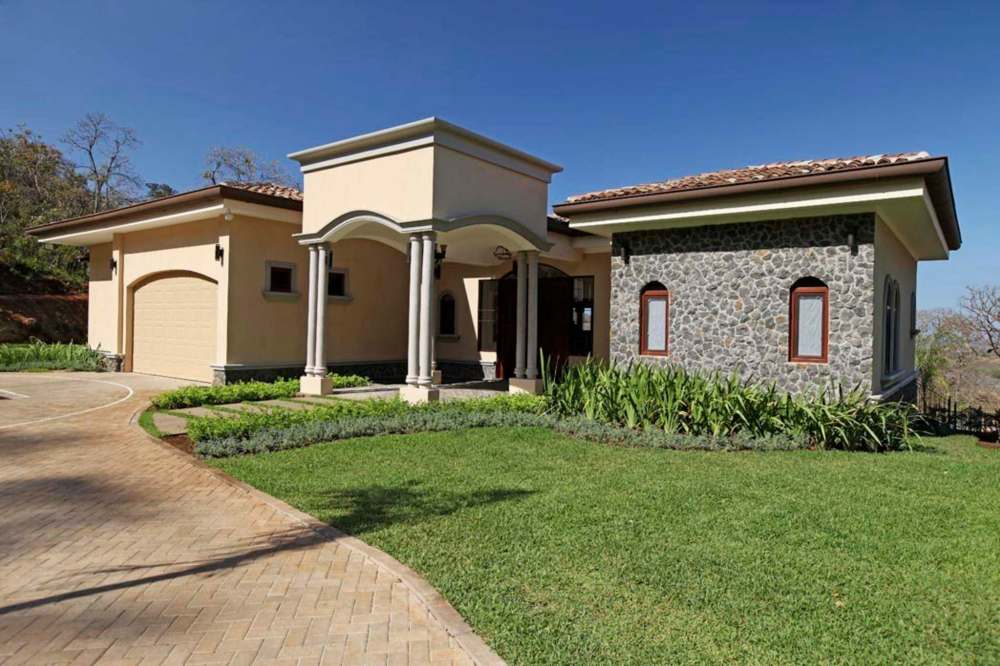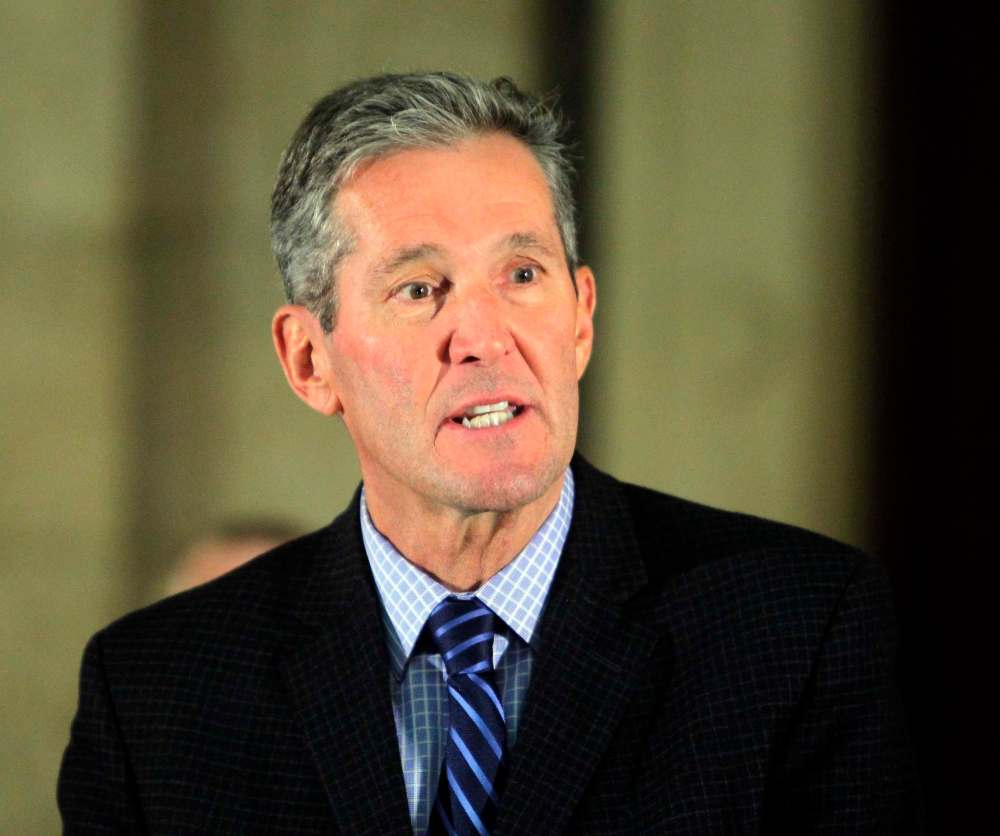Word choice ‘unfortunate’: Pallister
Premier talks about controversial night-hunting statements, denies quotes in Maclean's magazine
Advertisement
Read this article for free:
or
Already have an account? Log in here »
To continue reading, please subscribe:
Monthly Digital Subscription
$0 for the first 4 weeks*
- Enjoy unlimited reading on winnipegfreepress.com
- Read the E-Edition, our digital replica newspaper
- Access News Break, our award-winning app
- Play interactive puzzles
*No charge for 4 weeks then price increases to the regular rate of $19.00 plus GST every four weeks. Offer available to new and qualified returning subscribers only. Cancel any time.
Monthly Digital Subscription
$4.75/week*
- Enjoy unlimited reading on winnipegfreepress.com
- Read the E-Edition, our digital replica newspaper
- Access News Break, our award-winning app
- Play interactive puzzles
*Billed as $19 plus GST every four weeks. Cancel any time.
To continue reading, please subscribe:
Add Free Press access to your Brandon Sun subscription for only an additional
$1 for the first 4 weeks*
*Your next subscription payment will increase by $1.00 and you will be charged $16.99 plus GST for four weeks. After four weeks, your payment will increase to $23.99 plus GST every four weeks.
Read unlimited articles for free today:
or
Already have an account? Log in here »
Hey there, time traveller!
This article was published 29/01/2017 (3241 days ago), so information in it may no longer be current.
Although he may have been guilty of using some “unfortunate” words, Premier Brian Pallister said in an exclusive interview he is not racist and supports the right of indigenous hunters to engage in night hunting in areas where they have a legal right to harvest wildlife.
In his first extensive interview about the night-hunting controversy, Pallister said he used imprecise and possibly inflammatory language when he discussed the issue with a group of rural municipal politicians at a meeting in Virden on Jan. 16. Those comments were recorded by a radio reporter and widely broadcast and discussed in media reports on Jan. 19.
In those comments, Pallister talked of his concern about “young indigenous guys going out and shooting a bunch of moose.” He said that conflict between indigenous and non-indigenous people in many rural areas was threatening to become a “race war.”

In a telephone interview Sunday night from Costa Rica, Pallister said he now wishes he had used different language to broach the subject. “Quite frankly, it was an unfortunate choice (of words).”
Pallister said he has no quarrel with indigenous people who choose to night hunt on lands where they have a legal right to hunt.
“There are court-established, well-established indigenous hunting rights,” Pallister said. “Jurisprudence is very clear on this: indigenous people have the right to hunt on their land, they have the right to hunt on crown land, they have the right to night hunt on private land with the permission of landowners.”
However, Pallister said his real concern is what he called “night shooting” — a term he uses to describe hunters who fire their weapons from the back of trucks using high-powered lights in areas where hunting is not permitted, including on or near highways and farm properties.
“I think it’s important to get people talking about this issue,” Pallister said. “People are getting fearful and concerned. I’m hearing this from indigenous hunters and elders, too. This is across the board. Out in the country where the night-shooting activity is happening, it’s scaring people. It’s a growing problem.”
Pallister said his original comments on Jan. 16 were missing some context. During his recent tour of western Manitoba, he heard many people raise the issue of night hunting, and related to him anecdotes about bullets striking farm buildings and inadvertently killing farm animals. Pallister noted that at least one man died in the past year in connection with night hunting.
Pallister said he also heard some non-indigenous people talk about a possible “vigilante” response, which only re-enforced the importance of bringing the issue up for discussion when he met with municipal councillors in Virden.
In that speech, Pallister said he intended to encourage those in attendance to work together with indigenous people to end illegal night hunting to avoid turning the issue into a “race war.” His comments denouncing night hunting were supposed to be limited to the illegal practice, not hunting involving indigenous hunters on legally appropriate land.
However, the issue remains a difficult one for the premier to discuss and one that will likely continue to dog him. When asked directly if he believes indigenous hunters are responsible for the majority of incidents of illegal night hunting, Pallister said “yes”, based on provincial government statistics that show a high number of hunters with treaty status involved in illegal night hunting.
Pallister acknowledged that non-indigenous hunters are also involved in this reckless practice, and that in the final analysis, race need not be part of the debate over how to curtail night hunting.

The night hunting story exploded later last week when a comment attributed to Pallister appeared in an article in Maclean’s magazine. A reporter from that magazine made an unannounced visit to Pallister’s Costa Rica vacation home. During her visit, the reporter quoted Pallister as saying that “young indigenous men — a preponderance of them are offenders, with criminal records — are going off shooting guns in the middle of the night. It doesn’t make sense.”
Pallister flatly denied making that statement, and said he was shocked to see any direct quote in the article given that, during the reporter’s brief visit to his vacation home, she did not appear to have a notepad or tape recorder. Pallister said his office has contacted Maclean’s to ask for notes or a recording to back up the quote.
Pallister said he has a long history of advocating for indigenous rights, particularly as it relates to indigenous women, and would never utter such a comment. “I’m obviously disappointed about the comments attributed to me because that’s not me.”
The night hunting story did expose just how weak the Pallister government can be when the premier is out of the country in Costa Rica. Shortly after the comments on night hunting went public on Jan. 19, Pallister left for an 11-day visit to his tropical vacation property. As a result he was unable to respond directly to concerns about his comments, and efforts by his office to defuse the story seemed only to fan the flames of controversy even more.
The vacuum that was created in his absence certainly allowed the story to grow in intensity and reach. Pallister conceded that it’s possible the story could have been defused earlier had he been in Winnipeg, but said he is still committed to taking family time in Costa Rica, and that he can still perform all of the important duties of a provincial first minister while on vacation.
“I’ve been accessible every day I’ve been here,” he said. “I’ve got my family 10 per cent of the time and I’ve got the job the other 90 per cent of the time. I’m happy with that ratio, but I won’t go lower than 10 per cent family time.”
dan.lett@freepress.mb.ca

Born and raised in and around Toronto, Dan Lett came to Winnipeg in 1986, less than a year out of journalism school with a lifelong dream to be a newspaper reporter.
Our newsroom depends on a growing audience of readers to power our journalism. If you are not a paid reader, please consider becoming a subscriber.
Our newsroom depends on its audience of readers to power our journalism. Thank you for your support.
History
Updated on Sunday, January 29, 2017 11:19 PM CST: changes headline
Updated on Monday, January 30, 2017 8:30 AM CST: Added interview from Costa Rica






